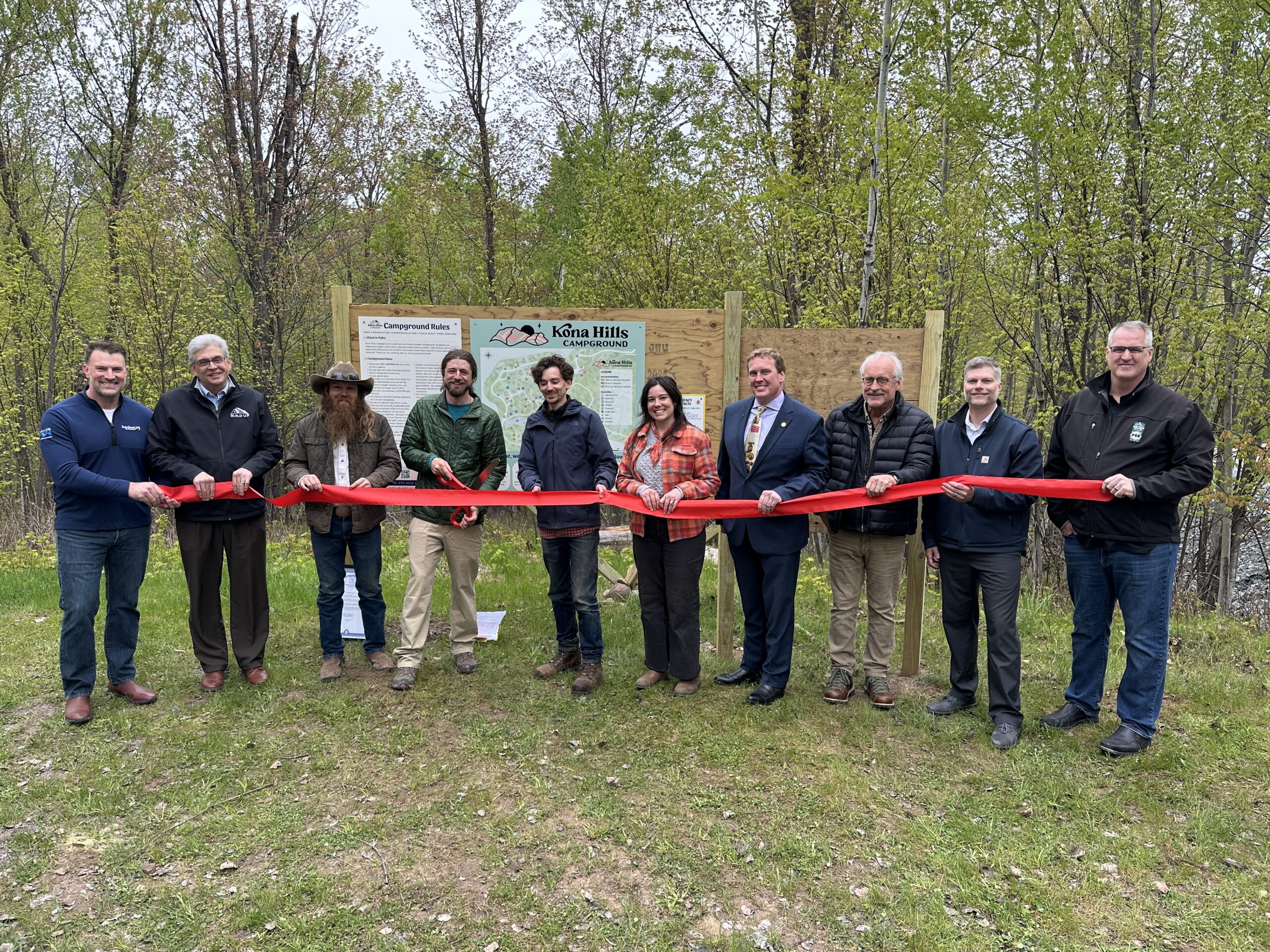Perched 200 feet above the southern shore of Lake Superior, Kona Hills Campground has opened its doors as Michigan’s Upper Peninsula’s newest outdoor destination.
Co-owned by Marquette natives Jeremy Johnson, Devin Mahoney, and Tim Piirala, the 80-acre campground features 40 secluded walk-in and drive-in campsites and was developed with the support of Director of Operations and Marketing Sara Johnson and several local contractors and businesses.
Locally Rooted Vision
In an interview with Modern Campground, co-founder Jeremy Johnson shared that the inspiration for the campground came from a deep-rooted appreciation for the outdoors.
“We grew up camping. We grew up in the outdoor recreation world, working as guides, so we’ve always had an interest in camping and the general outdoors,” Johnson said.
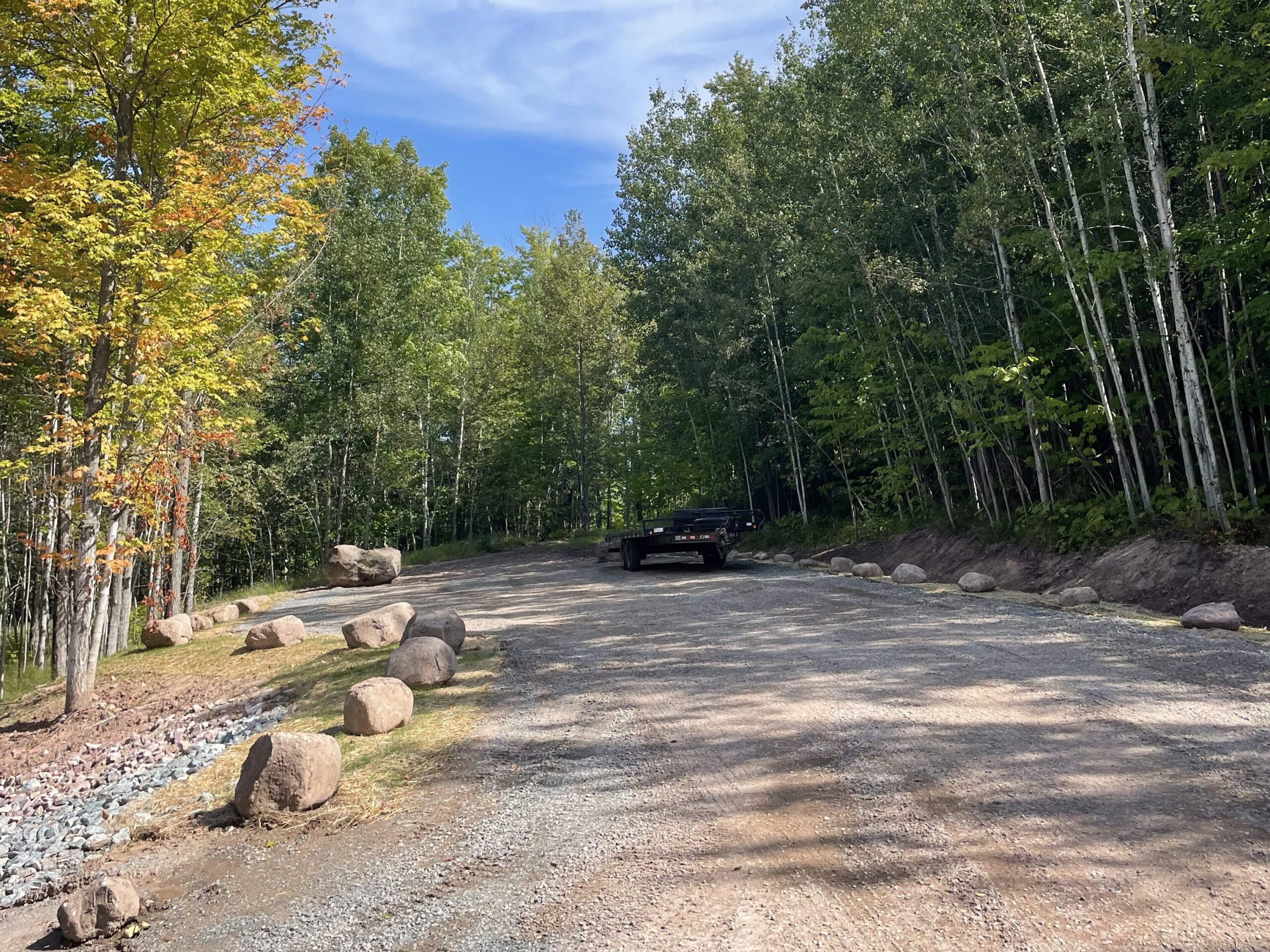
The group was drawn to the property for its natural beauty and believed it should be preserved for future generations to enjoy in its rustic form.
One of the most striking features of the campground is its location atop a dolomite rock outcropping known as Kona dolomite, a formation unique to the Upper Peninsula.
Off-Grid by Design: Elevation, Privacy, and Minimal Impact
Johnson explained that the site’s natural elevation and terrain were key to the campground’s design.
“We use the land as well as the elevation to give privacy to each campsite,” he said. “You might only be 30 feet away from another campsite, but you’re 40 feet above or below that campsite.”
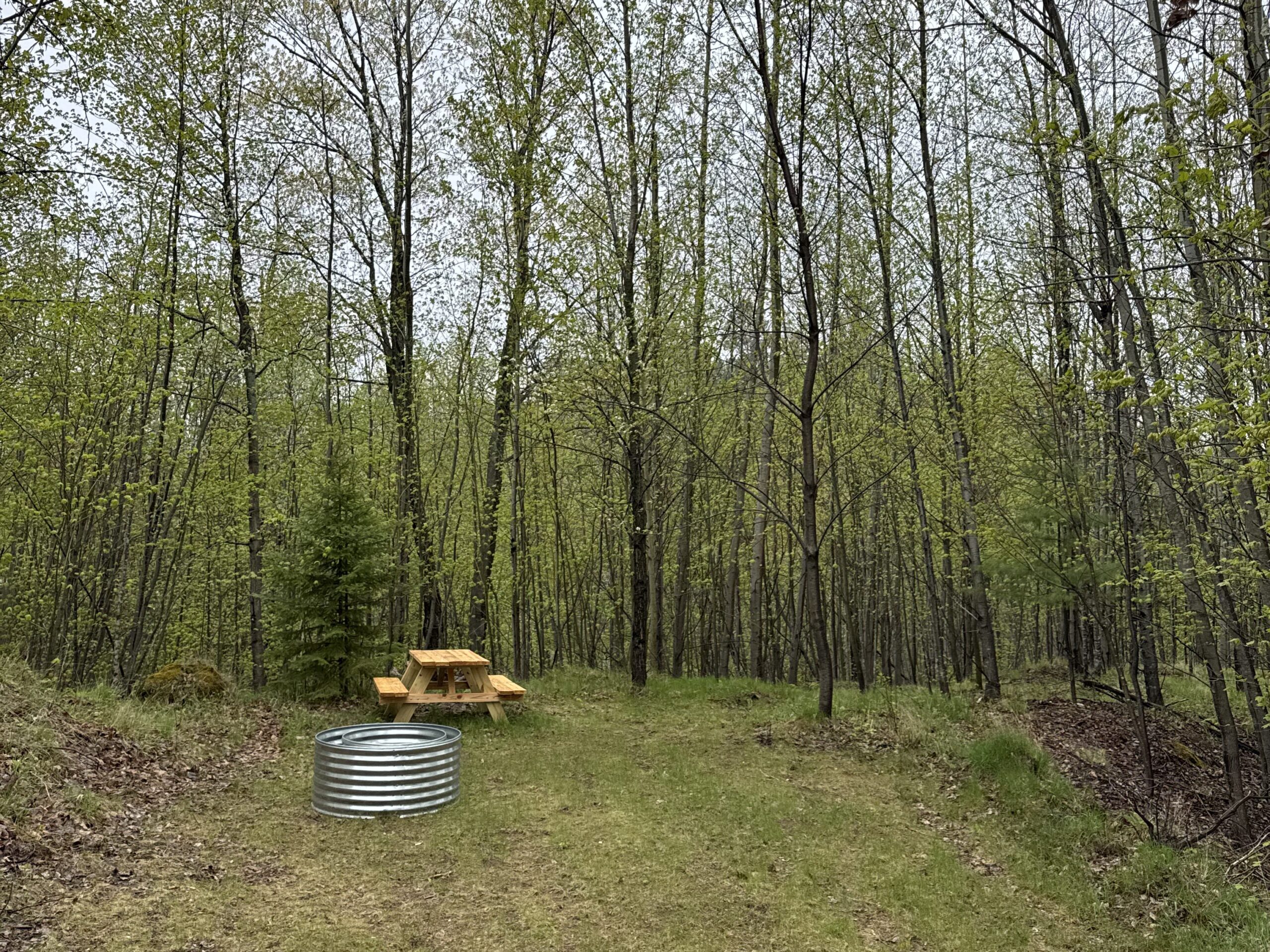
Unlike many modern campgrounds, Kona Hills is intentionally off-grid. He noted that the campground is designed for those seeking a rustic experience near town, with amenities limited to vault toilets and hand-pump wells, and no access to electricity or sewer hookups.
In terms of broader economic impact, Johnson sees Kona Hills as contributing to Marquette County’s growing status as an outdoor recreation hub.
“People come from all over the world to explore what Marquette has to offer,” he said. “Our campground offers a specific niche very close by to all of those amenities,” attracting travelers who seek a quiet, nature-immersed experience without the noise and infrastructure of RV parks.
Permits, Access, and Challenges
Navigating the permitting process proved to be one of the most complex aspects of developing Kona Hills. Johnson explained that Michigan is one of the few states where campgrounds are regulated at the state level rather than locally.
This required the team to secure both a local special use permit from Sands Township and a state permit through the Michigan Department of Environment, Great Lakes, and Energy (EGLE).
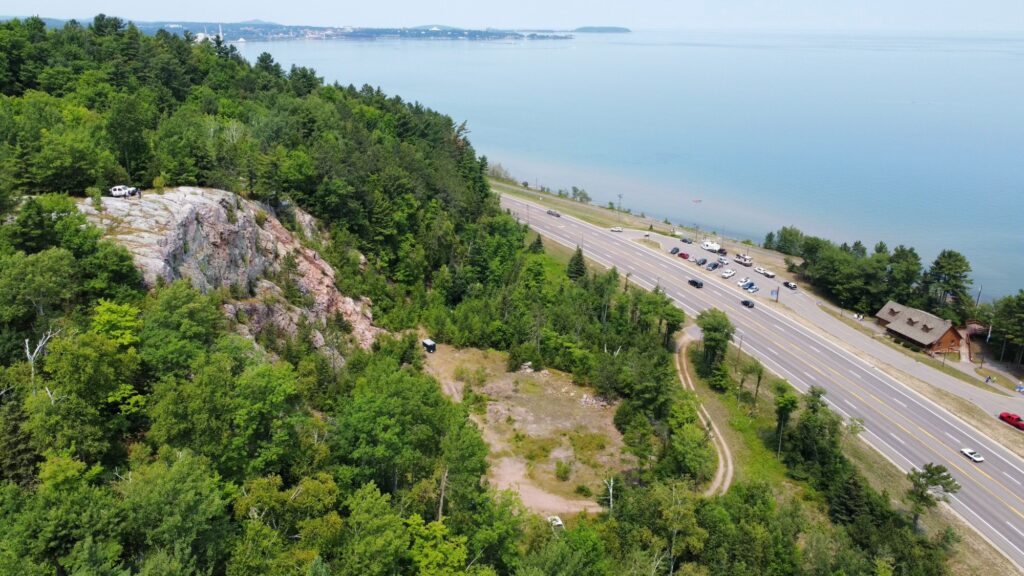
The type of state license also shaped major infrastructure decisions. Because Kona Hills qualified for a rustic campground license, it could not connect to municipal utilities.
Johnson said this meant the team had to install hand-pump wells for water and vault toilets for sanitation. If they choose to add electricity in the future, it would need to come from solar or wind sources, as grid connections are not allowed under the rustic classification.
These limitations influenced both the initial site design and long-term planning, as future restroom upgrades would require a custom-built septic system.
One of the most significant and unexpected challenges was also securing safe and permitted access to the site.
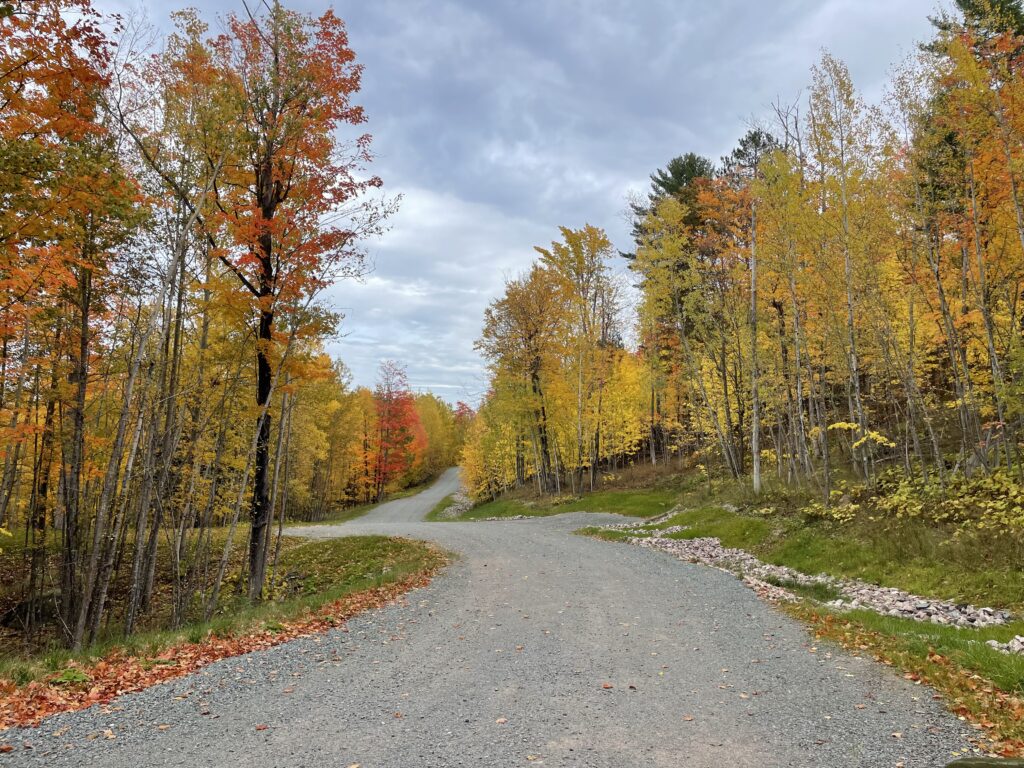
The campground sits roughly 200 feet above both the lake and the nearest road, requiring state approval from the Michigan Department of Transportation for a new entrance.
Johnson said it took a couple of years to resolve the issue, but a $100,000 grant from the Michigan Department of Agriculture and Rural Development (MDARD) made it possible.
The funds, along with a financial match from the campground team, went toward building a new 300-foot-wide entrance off the main highway, ensuring safe access for visitors.
Sustainable Practices
Environmental stewardship is another core value at Kona Hills. Johnson revealed that the campground sits adjacent to a former quarry site and that future developments will follow sustainable practices.
“We are trying to keep development integrated into the natural environment,” he said.
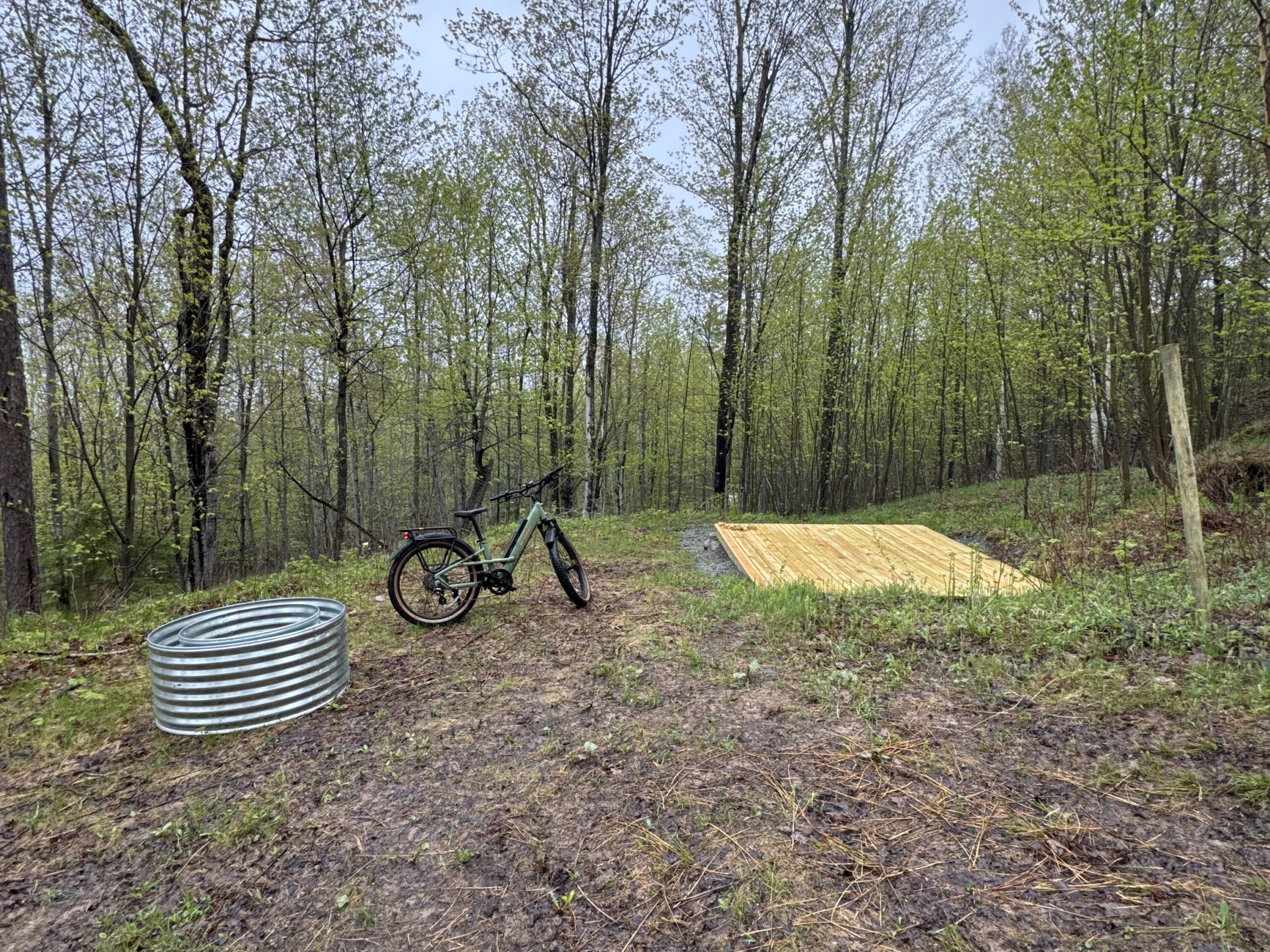
The team has already received about 75 bookings, and while full demographic data isn’t yet available, Johnson said their typical guests are “solo travelers or a couple in their 20s or 30s, mountain bikers, and other outdoor recreation enthusiasts”.
The campground is also equipped to host families, though Johnson acknowledged that minimal amenities may lead some to seek more developed locations.
Looking ahead, expansion will be measured and minimal. Johnson said the team does not plan to add more sites in the current area of Sands Township, though they may develop an additional seven-acre parcel in neighboring Chocolay Township with five to 10 additional sites.
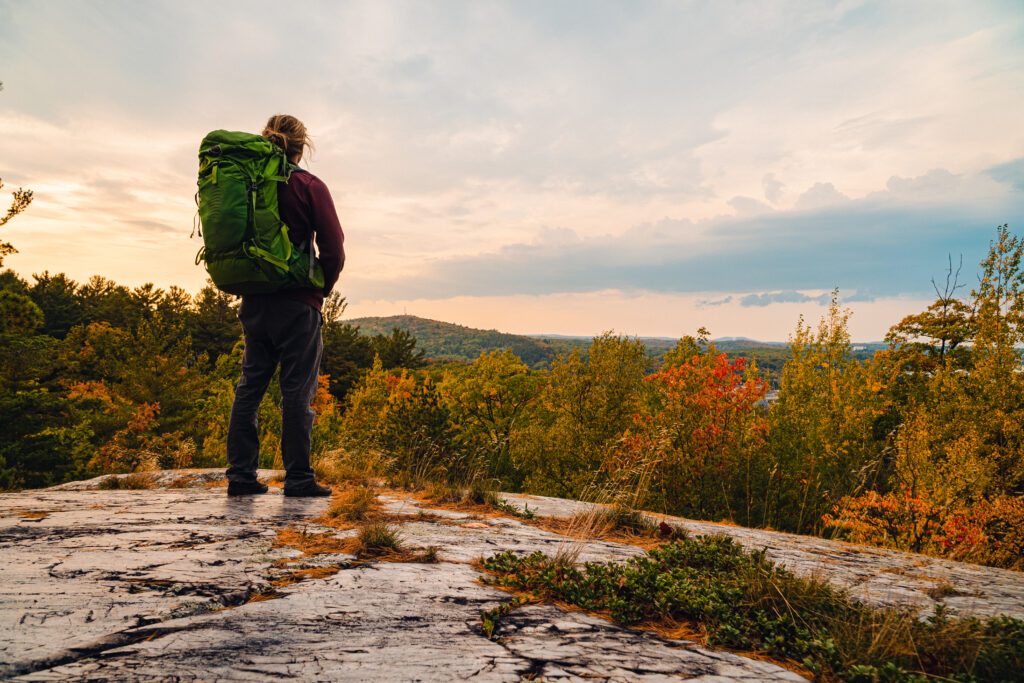
“Any upgrades would be very minimal,” he said, suggesting possible additions like yurts or geodesic domes to enhance a few select campsites.
The April 2024 report by Modern Campground and Cairn Consulting Group highlights that sustainable practices significantly influence campground selection and guest satisfaction, with over half of leisure travelers preferring sites that prioritize environmental responsibility.
Kona Hills Campground reflects these findings through its off-grid design and low-impact infrastructure. By relying on hand-pump wells, vault toilets, and future solar energy options, the campground incorporates key sustainability elements such as energy and water conservation. initiatives the report identifies as both effective and easy to adopt.
Kona Hills also embraces land stewardship and community engagement, two practices emphasized in the study. The team is actively working with the Superior Watershed Partnership to establish a conservation easement around a rare eagle’s nest on the property, demonstrating a commitment to protecting local wildlife and educating visitors.
For more information about Kona Hills Campground, visit their website here.
Featured image by Kona Hills Campground

